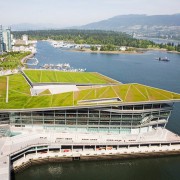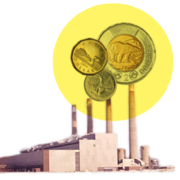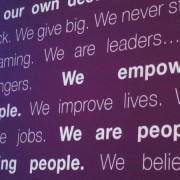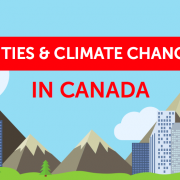Pathway To Paris #20: It’s cloudy in Paris… notes from the COP21
About this service | Subscribe to this briefing | Contact the editor
In this Issue #20
- SSG digest from the frontline
- An energy transformation
- Carbon pricing everywhere
- Divestment of risky assets
- Ratcheting up the ambition
- Coming to a city near you
- Two degrees too many
- To be legal or not to be?
SSG digest from the frontline
On Monday, 150 heads of states established an ambitious and hopeful tone for the negotiations. For a sense of the venue and the mood check out this short video from the UNFCCC.
The negotiations are heating up after little progress by diplomats so far. You can feel the energy levels increasing and the talk becoming more urgent and impassioned at the bargaining table: “We are not making anywhere near the progress we need to be making at this point”, said US official Daniel Reifsnyder, one of the two co-chairmen of the negotiations.
Today the President of the COP (Conference of the Parties) called the heads of the negotiations together to urge them to move more quickly. Followed by France’s top diplomat, Laurent Fabius, speaking on the sidelines of the conference. “My message is clear: we must accelerate the process because there is still a lot of work to do. Options for compromise need to be found as quickly as possible.” Despite this lack of assurance, a tired yet optimistic veteran of climate negotiations Todd Stern commented, “We are off to a good start. We have issues that are still challenging, but we come here with a great deal of positive momentum.”
After Saturday, negotiations will be in the hands of ministers. They have their work cut out for them. To keep abreast of the conference, please follow our feed on @SSG_News and @Pathway2Paris
An energy transformation
On Monday, India and France launched the International Solar Energy Alliance to boost solar energy supply in developing countries. The alliance is made up of 120 countries to mobilise over a trillion dollars by 2030 to enable solar energy to be affordable and hasten its access to market and scale. Specifically, France has said it will invest a total of €2 billion in renewable energy in Africa over the next five years.
In a separate announcement, twenty major economies joined with private sector investors including Bill Gates, Mark Zuckerberg, Richard Branson and others to launch Mission Innovation, a program to inject an estimated US$20 billion over five years.
Carbon pricing is everywhere
Carbon pricing is becoming a must have aspect of a Paris agreement for more and more people and organisations, even those that might be considered unlikely, such as Alberta (which Al Gore is now championing). In a session at the World Business Council on Sustainable Development, a former CEO from the utility sector described how more than 1,000 major companies are using an internal price of carbon to help their companies avoid investing in assets that will become stranded as the world comes to terms with climate change. The World Bank issued a detailed report on the State and Trends of Carbon Pricing in 2015. The number of implemented or planned carbon pricing schemes around the world has almost doubled since 2012, totalling about $50 billion. An alliance including the World Bank, six heads of state and government from Canada, Chile, Ethiopia, France, Germany and Mexico and the International Monetary Fund called upon companies and countries to put a price on carbon, and more than 90 countries have indicated plans to implement carbon pricing regimes.
Divestment of risky assets
“There is a moral imperative to save the planet, to do so we have to end fossil fuel era now. It also makes economic sense. The fossil fuel assets owned by those companies are risky assets that are losing value,” Stephen Heintz, president of the Rockefeller Brothers Fund.
More than 100 institutions controlling $US800 billion ($1.09 trillion) in funds worldwide opted to make new divestments of at least some of their fossil fuel assets in the ten weeks running up to the Paris climate summit, according to campaign groups 350.org and Divest-Invest. (http://divestinvest.org/) The tally brings to $US3.4 trillion (firewall) the amount of funds under management by firms that support at least a partial sell-off of their holdings of coal, oil or other fossil fuels.
Ratcheting up the ambition
Since the latest pledges of 185 nations to the UN to ensure our global emissions prevent warming of 2 degrees celsius are inadequate to prevent dangerous warming, a five year review process has been proposed to ratchet up ambitions over time. India is reluctant but many major emitters including China, the United States and the European Union are now favouring a five-year review period on promised greenhouse gas cuts.
Coming to a city near you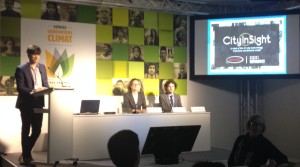
Our team at SSG launched CityInSight, a new energy, emissions and finance model on Wednesday in the Climate Generations are of the COP. Check out the summary here.
Two degrees too many
A major sticking point between those nations most at risk (i.e. islands states) and other countries is the long term target for limits to warming. The most vulnerable 44 countries including the Association of Small Islands States have demanded that the target be 1.5 degrees. A working group of scientists issued an assessment of the science in 182 compelling pages, confirms the views of these countries indicating that 2 degrees of warming is too high and find that the 1.5 degrees would avoid or reduce substantial risks.
To be legal or not to be?
There is considerable debate over the legal nature of the outcome agreement in Paris. Some states are insistent that the agreement be legally binding, while other argue that this will hamstring the US with its rather reluctant congress. If the outcome is defined as a treaty, this indicates an intention by the parties that the agreement will be governed by international law. But not all parts of the treaty are under a legally binding. For example, countries’ “nationally-determined contributions” (NDCs) could take the form of a political aim rather than a legal obligation. For the advantages and disadvantages of different approaches to the legally binding nature of this convention, see this post by Dan Bodansky.
And to end on…
Canada is back. Canada sent 383 people to the climate talks in Paris, more than Australia, UK and US together, according to the National Post.




